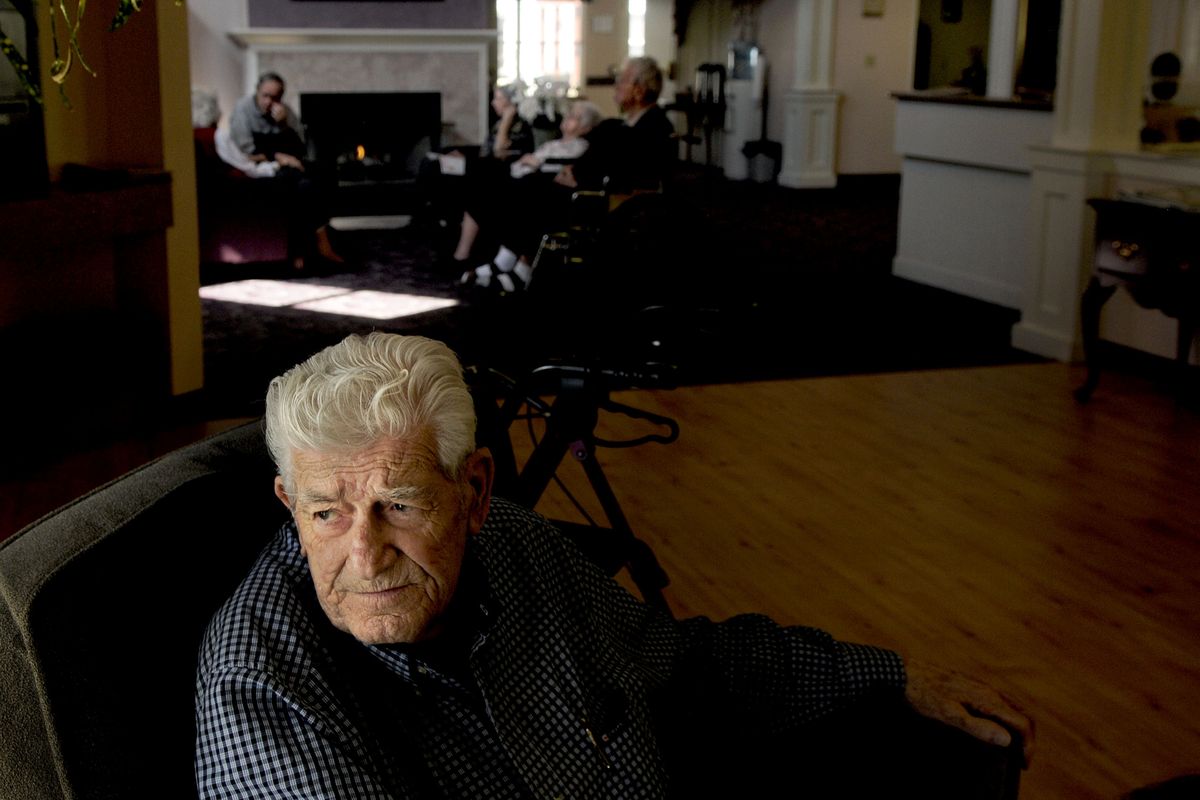Rich in history but weathered; grange imperiled

Avery Bright remembers when the Cloverleaf Grange was the hub of a close-knit community focused on farming and family values.
Couples waltzed across the wooden floor on Friday nights, or gathered during election season to listen to candidates debate the issues. Over the past century, the grange hall on McGuire Road in Post Falls also hosted 4-H meetings, rummage sales, wedding receptions, potlucks and cowboy-themed church services.
“I spent a lot of my life inside those walls,” said Bright, 87. “Now, I’m one of the only ones left.”
Dying membership is threatening Idaho’s oldest grange.
The 106-year-old Cloverleaf Grange has shrunk to 22 members – only a handful of whom are still active, said Donald Billmire, the Idaho State Grange’s master. In April, he sent a letter to the grange, saying that he was “regretfully” taking action to revoke its charter.
Billmire said he’ll be contacting grange members over the next several weeks to discuss options.
“We’re in the process of trying to reorganize that grange,” he said. “In each of these granges where they’ve lost members and aren’t carrying out their duties, we’re taking a look to see if it’s possible to revitalize and reorganize the grange.”
But if new leadership doesn’t emerge, the Cloverleaf Grange could close, extinguishing a piece of North Idaho’s history.
Many of Idaho’s 33 chartered granges face similar challenges, Billmire said. Members are elderly and the farmlands surrounding grange halls have been replaced with subdivisions.
To survive, granges have to reinvent themselves for an increasingly urban population.
“A lot of folks moving into the area are from bigger cities. They don’t really understand the grange concept,” said 4-H leader Teresa Balderrama, whose Whistle Stop Club meets at the Cloverleaf Grange.
Founded after the Civil War, the Grange movement mobilized farmers to advocate for progressive causes, such as rural mail delivery and antitrust laws for railroads. Over the years, granges stayed active in grass-roots politics.
Granges also became social centers. Chuck Hodge, master of the Blanchard Grange in Bonner County, grew up on a farm in Northern California. Activities at the local grange helped combat the isolation that scattered farm families experienced, he said.
“You didn’t go to town every day, so you could go weeks without seeing someone who wasn’t in your family,” Hodge said.
Hodge, 58, was part of a new slate of officers who revived the Blanchard Grange last year when it was facing closure. About 50 people now attend the grange’s monthly potlucks. Most are looking for ways to connect with their neighbors, Hodge said. Only a few earn a living from ranching or farming.
Bright joined the Cloverleaf Grange in the early 1950s and held most of its offices over the next 40 years. An electrician at Kaiser Aluminum, Bright and his wife also raised cattle and hay in Post Falls. Their six children were active in 4-H, which used the grange hall for meetings.
The Cloverleaf Grange remains supportive of 4-H, said Balderrama, the Whistle Stop Club’s leader.
“I personally attended 4-H meetings there when I was a kid 25 years ago,” she said.
Balderrama’s 16-year-old daughter now attends 4-H meetings at the grange with the 40 other kids in the Whistle Stop Club. Club members work on projects including sewing clothing, dog obedience and raising heifers.
“We’d be bummed if the grange closed,” Balderrama said. “That would be 40 displaced kids with no place to meet.”